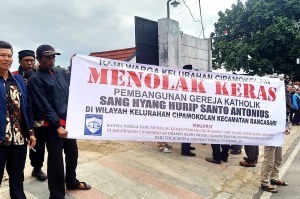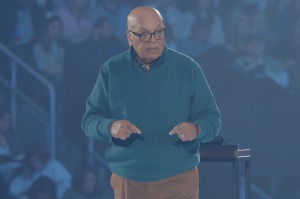Opposition to Female Pastors in Church of Finland Becoming Stricter
A small group of male clergy in the Lutheran Church of Finland are more loudly voicing opposition to women in the pulpit as female clergy grow in number.
More than one third of all clergy in Finland's largest church body are women and female pastors are expected to outnumber male clergy by 2015, according to Agence France-Presse.
"In 1986 we organized the work in a way so that conflicts were avoided, but now that the number of women ordained is sharply increasing, it's not possible anymore," Archbishop Jukka Paarma told AFP.
The Lutheran Church of Finland has approved the ordination of women for 21 years and according to the denomination's Church Annual Report 2006, opposition to female clergy has decreased.
"[B]ut the attitudes of those who oppose it have become even stricter," the report stated.
While opponents of women ordination make up only two percent of Finnish pastors, the continual increase of female clergy has prompted serious conflicts in the church in recent months.
In December, a church synod threatened to dismiss pastors who refused to work with their female colleagues and also suspended several male pastors, according to AFP. Earlier in 2006, the Bishops' Conference stated that professional discrimination based on gender is "judicially intolerable."
At the same time, however, the synod also stated that "the opposition to the ordination of women pastors is not a heresy."
The mixed message reflects the larger Bishops' Conference last year that emphasized the responsibility of Lutherans of the opposing viewpoints on women ordination to cooperate with one another.
Conflicts on the issue has contributed to a drop in the denomination's membership. The majority of the population has membership in the Lutheran Church of Finland, but the denomination has dropped from 90 percent in the 1950s to 82.4 percent of Finland's 5.3 million inhabitants.
Almost every female pastor has met resistance in their work, noted Satu Saarinen, a woman pastor who has written a doctoral thesis on the issue.
"The resistance, opposition and avoidance has hurt women pastors, because they feel strongly that they are working under the calling. The opposition has hurt them on the level of occupational identity, but also on the deeper level of self-identity," she said, according to AFP.
Nevertheless, with the majority of churchgoers and church officials accepting women pastors, representatives at the 2006 Conference had agreed that the Church needed to create a stronger front in dealing with those who oppose the ordination of women.





























